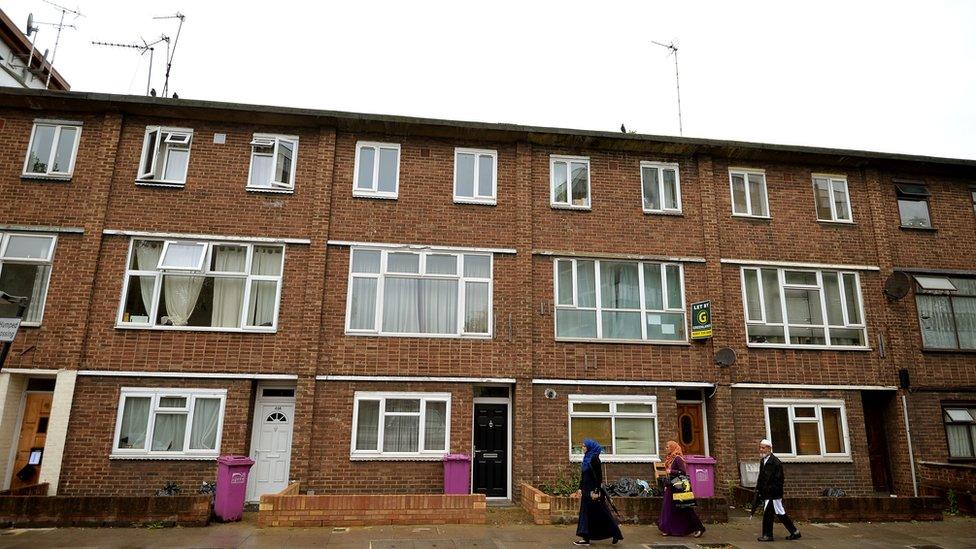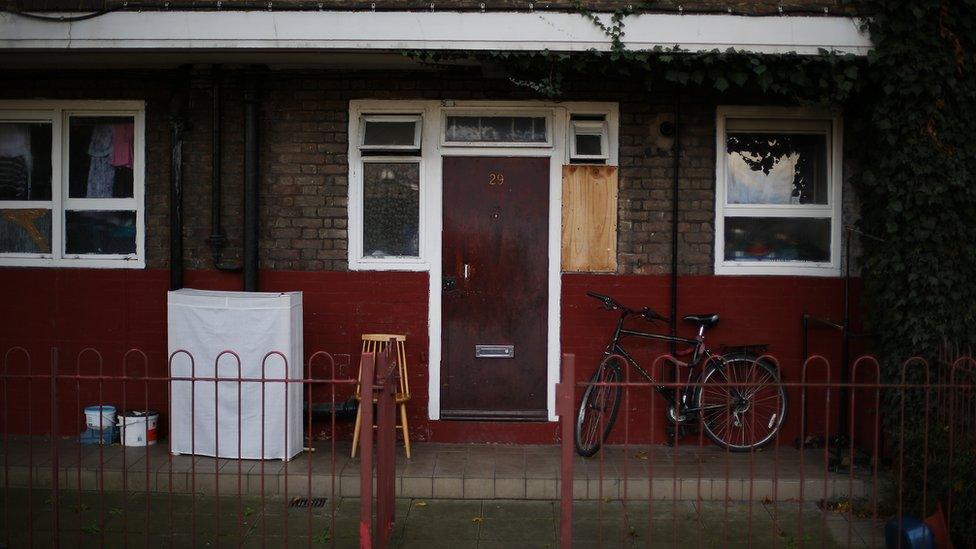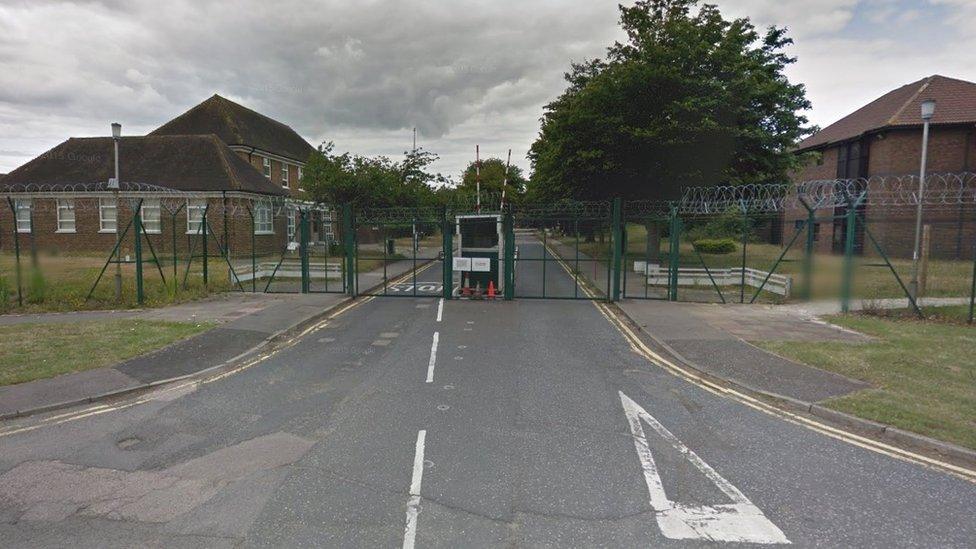Councils 'not informed' when receiving homeless Londoners
- Published

High London accommodation costs are forcing councils to look further afield
Councils in south-east England say they are often not told when homeless families are sent to their areas by London boroughs who cannot house them.
Some say they are not given crucial information about child-welfare concerns unless there were already formal child protection plans in place.
Many councils say they are not told how many such families are in their patch, which is in breach of housing laws.
Local government bosses say councils are working to improve liaison.
More than 2,000 London homeless families were placed outside the capital in the 2015-16 financial year, according to co-ordinating body London Councils - a threefold rise on the number three years earlier.
Placements are sometimes made at short notice, often into private accommodation, but although councils have a duty to inform the receiving authority, a number said they were often not contacted.
The BBC approached the 10 councils with the highest number of placements from London boroughs in the 2015-16 financial year.
The BBC also approached the four county councils responsible for child protection services in the councils that were not unitary authorities.
Many of these did not know how many families from London were currently in temporary accommodation on their patch.
A Kent local authority source said social services were told about child welfare concerns only if formal action had been taken by the London borough.
More informal concerns were not communicated, with some surfacing only when teachers in the receiving area raised them, the source added.
Buckinghamshire County Council confirmed it was one of those not being told about informal concerns.

People are having to go back to their previous doctors for appointments as they cannot get a place at their new surgery it is claimed
The Kent source said this lack of information meant children arriving at short notice often had to be sent by bus to schools far away.
Pressure on GP registrations also means families can be forced to return to London for appointments.
Anne Baxendale, a director of communications at Shelter, said: "It's vital councils stop cutting corners and always notify each other when families are moved like this, as per the law."
"Otherwise families risk getting stranded in an unknown area without the local services and support they need to get by."
'Ad hoc' information
An East of England Local Government Association survey, released under freedom of information legislation, revealed many councils there only "sometimes" or "never" received notification from London boroughs of temporary placements.
This is a breach of the 1996 Housing Act, which specifies that councils that place temporarily accommodated families in another council area must notify that council in writing within 14 days.
Thurrock Council explained in a letter to a London MP that notifications were either not being sent or were sent to the wrong person.
The Essex council, which received 272 such placements in 2015-16, according to data from London Councils, says it now has access to better information.
Harlow Council said it received information "on an ad hoc basis" and that it was not provided with details of the services families might need.
'Little choice'
Gravesham said it was not made aware either of the numbers placed or those families' requirements.
A spokesman for the Local Government Association, which speaks for local authorities in England and Wales, said: "In some cases councils have little choice but to place families outside their local area.
"The LGA is helping councils work together to sensitively manage this."
Kent County Council leader Paul Carter, who chairs the Kent Council Leaders and County Councils Network, said the placements put considerable demand on services.
He said: "We are keen to work closely with our London borough colleagues to reach common solutions and protocols to what is a strategic regional challenge."
London Councils declined to comment.
- Published3 April 2017

- Published24 May 2016
